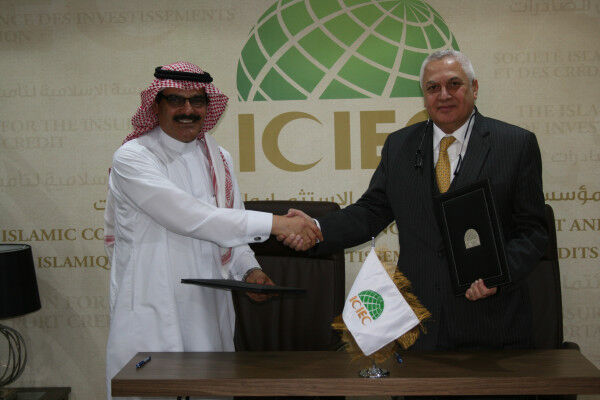CBN Seeks To Increase Credit To Agricultural Sector

The Governor of the Central Bank of Nigeria (CBN), Mr. Godwin Emefiele, has hinted of plans to increase credit to the agricultural sector.
He disclosed this at a dinner session with the board of the United Bank for Africa (UBA) in Abuja over the weekend.
In his remarks on, “Food Security, Job Creation and the Role of the Central Bank,” the CBN governor, stressed the critical role of banks and financial institutions in enabling more inclusive growth of the economy following the series of external shocks that had confronted economies globally.
CBN releases selection criteria for its ‘100 for 100’ policy; CBN releases selection criteria for its ‘100 for 100’ policy
Emefiele mentioned the impact of access to credit on the productive capacity of the country. He also said that under the Anchors Borrowers’ Programme, about $2 billion out of about $2.5 billion earmarked for key initiatives in the manufacturing, mining, and agriculture, services sectors had been disbursed to over three million farmers cultivating over 4.7 million hectares of arable land in 36 states and the Federal Capital Territory (FCT). He pointed out that the agricultural sector received almost 80 per cent of the fund.
He said, “We were aware that if the necessary support was provided to households and business such as improved access to finance, and better infrastructure, these measures would boost productivity, and help in enabling greater direct investment flows into our economy.
“As a result, there was a growing recognition on the need to refine our monetary policy tools and regulatory framework in order to ensure that it was more responsive to the needs of the Nigerian populace. It was important that this new framework enabled the flow of credit by financial institutions to critical sectors in order to aid our efforts at driving productive activities and creating job opportunities for our growing population.”
In order to construct a cost-effective, viable, and sustainable food system in Africa, he underlined the importance of investments in agriculture and allied industries, distribution storage systems, and necessary market infrastructure.
According to Emefiele, the programs have helped farmers raise their yields dramatically and have contributed greatly to Nigeria’s road toward food self-sufficiency.
He said, “For example, we have seen the re-emergence of the rice pyramids. Rice production has increased to over 7.5 million metric tons yearly, from less than four million metric tons recorded in 2015, prior to the introduction of Anchor Borrowers Programme (ABP). There were only 15 standard rice mills in Nigeria before the launch of the Anchor Borrowers Programme. As at today, we have over 50 standard and integrated rice mills creating jobs and reducing unemployment.”
“All these were done in partnership with deposit money banks who serve as our identification, risk appraisal and distribution mechanism for these interventions,” he added
Emefiele stated that the recovery of the economy has been supported by the expansion of over four million farmers, SMEs, and manufacturers who are building and growing enterprises that are enabling growth in manufacturing and ICT due to increased credit access.
Credit to industry increased from 10 per cent in 2014 to 16 per cent in 2021, according to him, while credit to agricultural increased from 3 per cent in 2013 to 6 per cent in 2022.
He disclosed this at a dinner session with the board of the United Bank for Africa (UBA) in Abuja over the weekend.
In his remarks on, “Food Security, Job Creation and the Role of the Central Bank,” the CBN governor, stressed the critical role of banks and financial institutions in enabling more inclusive growth of the economy following the series of external shocks that had confronted economies globally.
CBN releases selection criteria for its ‘100 for 100’ policy; CBN releases selection criteria for its ‘100 for 100’ policy
Emefiele mentioned the impact of access to credit on the productive capacity of the country. He also said that under the Anchors Borrowers’ Programme, about $2 billion out of about $2.5 billion earmarked for key initiatives in the manufacturing, mining, and agriculture, services sectors had been disbursed to over three million farmers cultivating over 4.7 million hectares of arable land in 36 states and the Federal Capital Territory (FCT). He pointed out that the agricultural sector received almost 80 per cent of the fund.
He said, “We were aware that if the necessary support was provided to households and business such as improved access to finance, and better infrastructure, these measures would boost productivity, and help in enabling greater direct investment flows into our economy.
“As a result, there was a growing recognition on the need to refine our monetary policy tools and regulatory framework in order to ensure that it was more responsive to the needs of the Nigerian populace. It was important that this new framework enabled the flow of credit by financial institutions to critical sectors in order to aid our efforts at driving productive activities and creating job opportunities for our growing population.”
In order to construct a cost-effective, viable, and sustainable food system in Africa, he underlined the importance of investments in agriculture and allied industries, distribution storage systems, and necessary market infrastructure.
According to Emefiele, the programs have helped farmers raise their yields dramatically and have contributed greatly to Nigeria’s road toward food self-sufficiency.
He said, “For example, we have seen the re-emergence of the rice pyramids. Rice production has increased to over 7.5 million metric tons yearly, from less than four million metric tons recorded in 2015, prior to the introduction of Anchor Borrowers Programme (ABP). There were only 15 standard rice mills in Nigeria before the launch of the Anchor Borrowers Programme. As at today, we have over 50 standard and integrated rice mills creating jobs and reducing unemployment.”
“All these were done in partnership with deposit money banks who serve as our identification, risk appraisal and distribution mechanism for these interventions,” he added
Emefiele stated that the recovery of the economy has been supported by the expansion of over four million farmers, SMEs, and manufacturers who are building and growing enterprises that are enabling growth in manufacturing and ICT due to increased credit access.
Credit to industry increased from 10 per cent in 2014 to 16 per cent in 2021, according to him, while credit to agricultural increased from 3 per cent in 2013 to 6 per cent in 2022.







